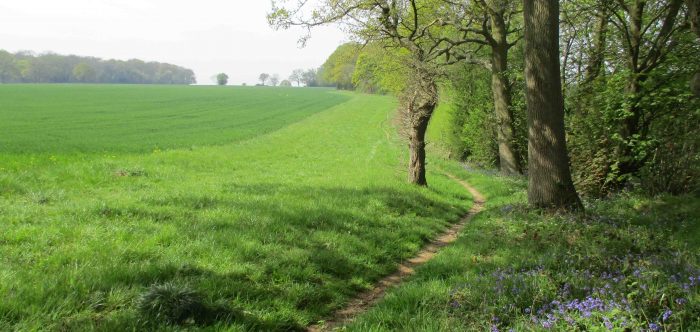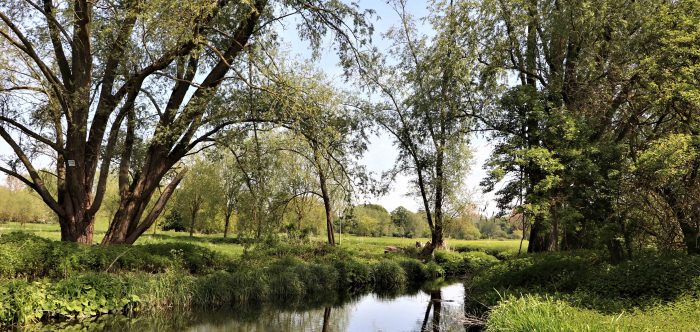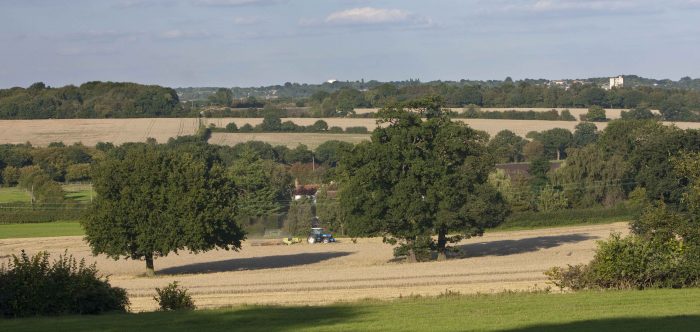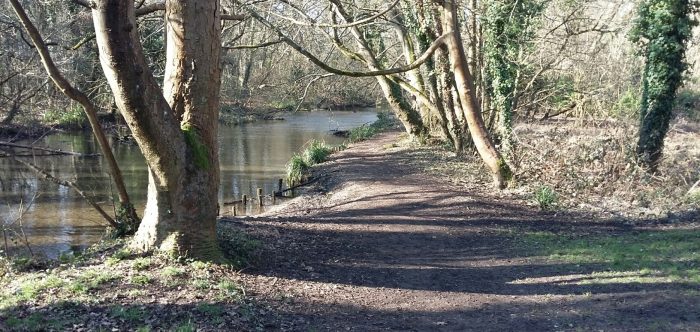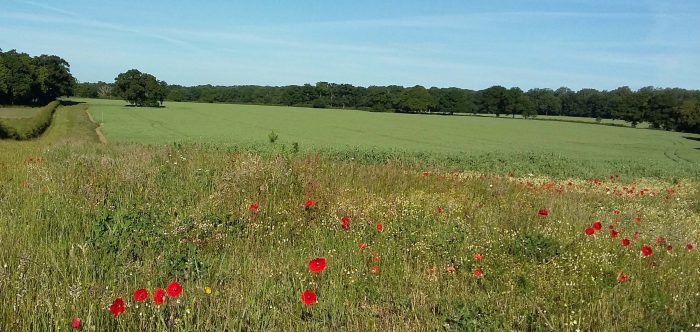Planning applications
Read CPRE Hertfordshire’s responses to significant planning applications. These are organised by district.
Also see below at the bottom of this web-page for advice on how to influence and respond to a planning application and participate in an appeal process.
Our new (published March 2025) guide ‘How to respond to planning applications’ is available for download here.
We are also happy to provide planning advice as time and resource allows, but please understand that our CPRE members always receive first priority. Please click here to become a member.
How to influence and respond to a planning application
Look at the planning application
All planning applications are available to view on the relevant local planning authority’s website. You can also visit the planning department in person and ask to view the planning application documents.
Visit the site of the proposed development to assess its likely effects
Take photos of the site and anywhere else that you think will be affected. You can send in photos with your comments.
Decide whether the proposal will affect your interest in the local area
These must be relevant to the planning application. Extra traffic, impact on wildlife, visual intrusion / loss of light, and loss of residents’ amenity are issues that matter. But house prices and views from private properties are not a planning consideration.
Examine relevant planning documents and policies
You can look at copies of the National Planning Policy Framework, the Local Plan, and Neighbourhood Plans (where they exist) at your local planning authority’s office, libraries or on the authority’s website. Think about how you can use the policy wording to support your arguments.
In addition, consider looking at other national and local strategies. For example,
if you are concerned about:
- rural landscapes and local character, look at Natural England’s Natural Character Area Profiles;
- ecological impacts, look at magic.gov.uk for environmental designations that are relevant;
- transport issues, refer to the Local Transport Plan;
- flood risk data is available for free from data.gov.uk or by request.
- climate change and mitigation, look for the authority’s declaration of a climate emergency and associated action plan.
- Consider other issues such as design, infrastructure, air and water quality, and waste water treatment.
Decide on your action
Depending on your concerns and the strength of policies supporting your view, decide whether to accept, seek amendment, actively support or outright object to the application.
You may feel that the principle of a scheme is okay, but that alteration to the access, design and/or layout of a proposal would reduce harmful impacts. In these cases, you can write a letter of support subject to improvements being agreed. Minor alterations can be made to an application without resubmitting another one – so it’s important to follow the progress of the application carefully. In cases where you oppose the principle and you see the balance between benefit and harm being towards harm you should lodge an objection, stating clearly what harm would be caused and why the authority should refuse permission.
Speak to the planning officer
When you have considered the application details, have read relevant planning policies and have focused your concerns, it may be useful to speak to the planning case officer responsible for the application. Remember that they are doing their job. They have to show balance and consider the application in accordance with stated planning policies. Like you, they are human, and should be treated courteously.
Put your comments in writing and send the letter to the planning authority
If speaking with the planning officer does not satisfy your concerns and you still feel strongly about adverse impacts of a planning application, then write to the planning department. You can either comment online, send an email or a letter. Be as clear and concise as possible, stating why you think the application should be refused. Remember that your objections must relate to relevant issues, so refer to any relevant policies if you can.
Gather support for your views
Think about gathering support from other members of your community, elected representatives within the parish council or local authority. You can also contact your MP. The planning officer will consult other officers in the local planning authority about an application. These will include conservation, highways, public rights of way, ecological and housing officers. If you feel any of these specialists may be able to help, contact them to express your concerns and see if they will raise them in an official capacity with the planning officer.
Depending on the issue, you might consider speaking to statutory agencies such as the Highways Agency, English Heritage, Natural England and the Environment Agency. This will apply particularly to developments affecting designated nature conservation sites or designated landscapes such as the Chilterns National Landscape, listed buildings, and those that are close to water or in flood plains. Community action groups and environmental organisations can also provide valuable support.
Speak at the planning committee meeting
Applications are decided (or determined) at either Council planning committees or by planning officers who are allowed to make delegated decisions about small, uncontentious applications.
If the application is being determined by the planning committee, you can speak at the meeting. You must inform the local planning authority beforehand. If you are allowed to speak, you’ll only get three minutes to get your points across. Write a note beforehand, and practice reading it aloud. Don’t over run your allotted time. Committee members might ask questions so make sure you can support your comments with evidence. If you cannot justify what you say, it is best to leave it out as you’ll damage your case if you can’t back up claims.
Appeals and inquiries
Applicants who are refused planning permission have the right to appeal to the Secretary of State against the decision; this will be dealt with by the Government’s Planning Inspectorate. Alternatively, a local planning authority may approve an application but defer the final decision to the Secretary of State if it goes against the authority’s policies.
There is no ‘third-party right of appeal’. This means that only the applicant may appeal; members of the public and any other parties affected by a planning decision, either an approval or a refusal, cannot appeal.
There are three kinds of planning appeal which an applicant can choose, although the Planning Inspectorate can make the decision on which kind of appeal takes place, depending on the importance of the matter:
- written representation
- informal hearing
- full planning inquiry.
Anyone who has made a representation about the planning application which is being appealed will be informed by the Council. In the case of a written representation appeal, which is generally for small matters, an objector, or any member of the public, may make a written statement which should be sent to the Planning Inspectorate to be taken into account by the Inspector who makes the decision.
An informal hearing is when an inspector convenes a meeting of all the interested parties, including objectors if they wish, and everyone has a chance to make their case for and against the application. Lawyers are generally not present, nor are they particularly welcome at informal hearings. Again the Council will inform an objector of an informal hearing taking place and the arrangements for objectors.
For the largest applications, the Planning Inspectorate will call a full planning inquiry and this is publicised by the Council. Applicants, objectors and the Council are generally legally represented, although this is not required, and quasi-legal process is followed with the provision of evidence and cross-examination.
Local community objectors often form themselves into combined objectors’ groups to assist fund raising for legal fees. They are often out-spent by developers, although planning inspectors are aware of the discrepancy of resources in many cases. Community objectors can also ask to contribute to an inquiry as an “interested party” when they are able to make a statement to the inquiry in person, and, at the discretion of the Inspector, can ask questions of expert witnesses for the developer.
If an objector wishes to cross-examine the developer or their expert witnesses, they have to apply to be a “Rule 6 objector” and this requires a written application to the Planning Inspectorate in advance of the inquiry. For example, during 2022 CPRE Hertfordshire has been a Rule 6 objector at the Luton Airport inquiry, and a member of Combined Objectors Groups for the Aldenham solar farm and Woodcock Hill Village Green application inquiries.
Appearance at a planning inquiry requires significant preparation, and decisions by the Planning Inspectorate on all three types of appeal usually take about eight to twelve weeks to arrive, although some can take considerably longer.




